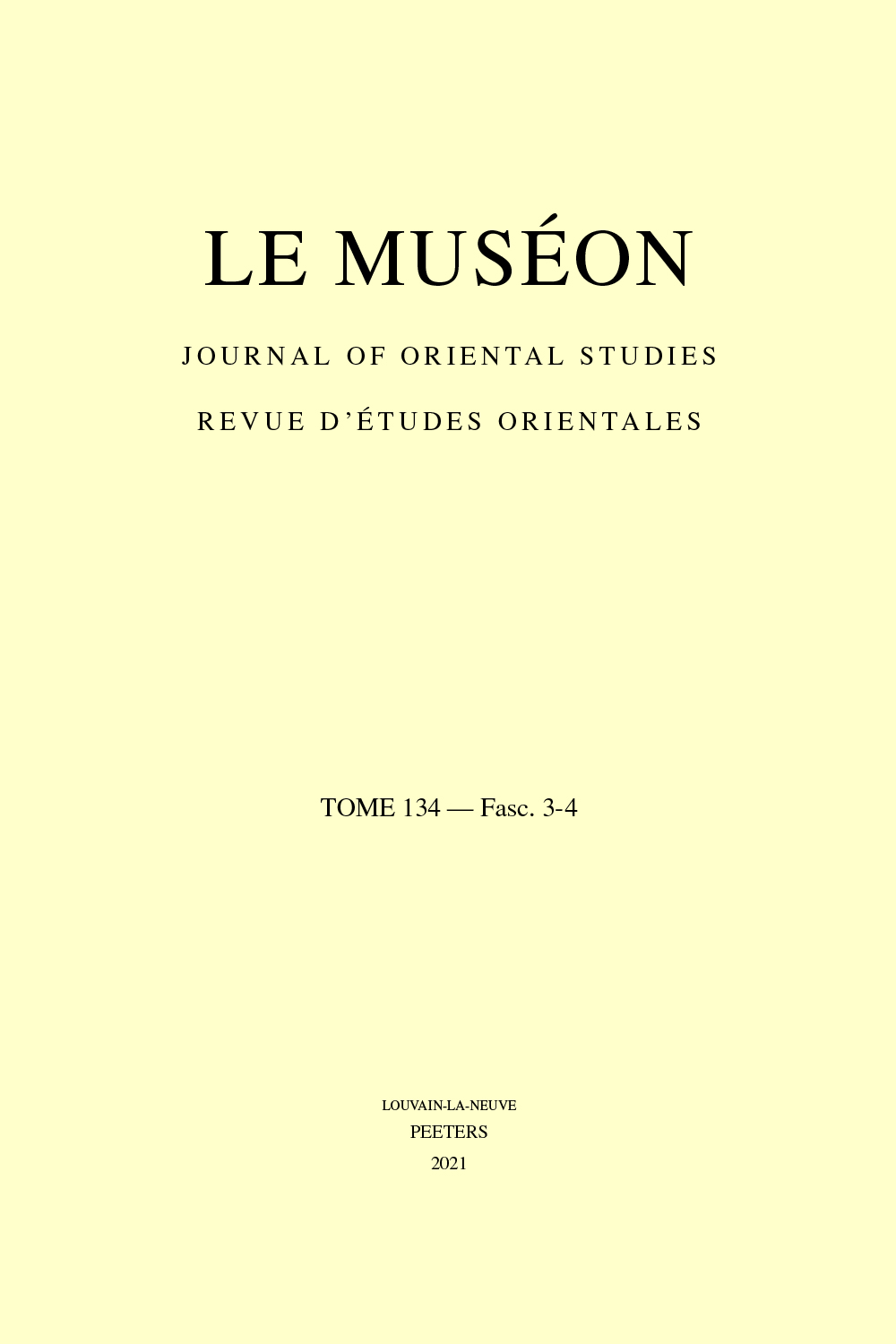 previous article in this issue previous article in this issue | next article in this issue  |

Preview first page |
Document Details : Title: 'Kūfa is Better' Subtitle: The Sanctity of Kūfa in Early Islam and Shī'ism in Particular Author(s): FRIEDMAN, Yaron Journal: Le Muséon Volume: 126 Issue: 1-2 Date: 2013 Pages: 203-237 DOI: 10.2143/MUS.126.1.2983537 Abstract : The article deals with the religious importance of Kūfa, one of the first garrison towns created by the Muslim conquerors of Iraq in the 7th century. It suggests that the site of Kūfa had a religious background combining Nestorian Christianity and Arab paganism. Medieval Muslim traditions attributed to Kūfa are analyzed. Most of them are ascribed to the Great Mosque and the smaller Sahla mosque. Shī‘ī texts clearly indicate that the holiness of Kūfa was equal to that of Mecca, Medina and Jerusalem in primitive Shī’ism and even surpassed their importance for two short periods. The article examines for the first time in research the genre of faḍā’il al-Kūfa (the merits of Kūfa) literature, written in order to glorify this holy site, probably during the same period as the faḍā’il Bayt al-Maqdis (merits of Jerusalem) literature. The faḍā’il al-Kūfa were censored by the Sunnī authorities but fragments are still to be found in Sunnī sources, mainly in medieval geography books. Most of the genre survived in Shī‘ī sources. The analysis of the holiness of Kūfa provides a solution to the unsolved question of why in the 10th century the Qarmaṭians stole the Black Stone from Mecca, and why they returned it to Kūfa before returning it to Mecca. |
|


